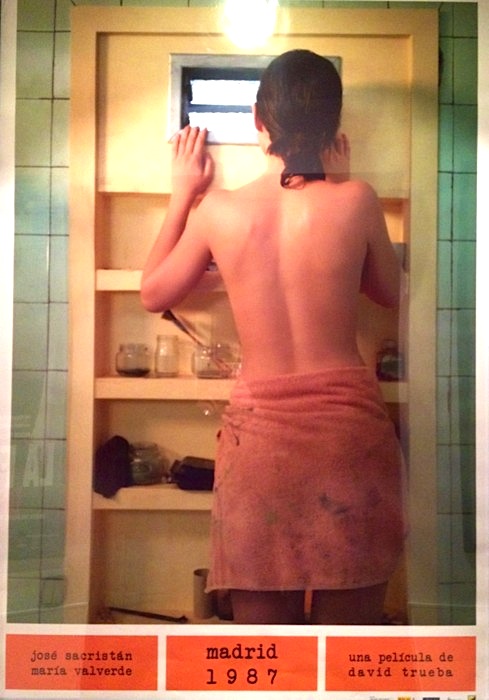 By Joe Bendel. It is a timeless question: which has the upper hand, age and guile or youth and vitality? It usually depends on how you score. One such Spanish generational tête-à-tête takes on a whiff of the zeitgeist, coming after the various coups and political circuses of the immediate post-Franco era. One curmudgeonly columnist has seen it all and has definite ideas about scoring during his encounter with an admiring journalism student in David Trueba’s Madrid, 1987 (trailer here), which screens during the 2012 Sundance Film Festival in Park City.
By Joe Bendel. It is a timeless question: which has the upper hand, age and guile or youth and vitality? It usually depends on how you score. One such Spanish generational tête-à-tête takes on a whiff of the zeitgeist, coming after the various coups and political circuses of the immediate post-Franco era. One curmudgeonly columnist has seen it all and has definite ideas about scoring during his encounter with an admiring journalism student in David Trueba’s Madrid, 1987 (trailer here), which screens during the 2012 Sundance Film Festival in Park City.
Miguel is so smugly self-satisfied, he can hardly stand himself. To Ángela, he is a legend. A Spanish Mencken who skewered generals and politicians for years in his daily column, it was something of a coup to land an interview with him. The old soldier has outlived his battles, though. Feeling like a relic, the columnist hopes to regain some youth by seducing the student. He is not exactly the smoothest of old foxes, but he gets an assist from fate when the two are inadvertently locked naked in the bathroom until Miguel’s artist friend returns to his flat. It is certainly awkward, but eventually they begin to talk about nearly everything – but particularly Spain, art, sex, and the passage of time.
Those who think of Madrid as a nude My Dinner with Andre might be right to an extent. Yet Trueba never lets his characters or viewers get too comfortable with the situation. Never completely hot or cold to the older man, Ángela’s emotional responses crest and fall with his near monologues. He can be charming, but he can also be insensitive. He certainly is pleased with the sound of his own voice, though, so he might not be one’s first choice to be locked in a bathroom with.
Yet for those who enjoy a talky movie, Madrid is quite sharply written and delivered. Trueba really digs into some meaty themes. Granted, some topics will have far more resonance for Spanish audiences, but there are plenty of universals any viewer can relate to.
Trueba’s two leads definitely deserve credit for their fearlessness, essentially appearing nude for the bulk of the film with only a handful of strategically placed towels for cover, while chewing on some heavy lines. Guys will surely notice María Valverde is quite healthy, but José Sacristán’s splotchy body is not likely to do much for the ladies. Still, he has a rare flair for pointed dialogue. In fact, it is rather fascinating to watch them play off each other.
Deftly helmed by Trueba (brother of Fernando Trueba, whose outstanding Chico & Rita opens in New York February 10th), the more-or-less two-hander never feels stagey, despite the necessarily claustrophobic setting. Ultimately, this dichotomy of a New Spain without experience or baggage vs. an Old Spain that jealously nurses its bitterness will appeal to a self-selecting audience. It is smartly realized by its two principals, so they will be satisfied with the results. Recommended at this year’s Sundance Film Festival for those who appreciate Spanish cinema or dialogue-driven films, Madrid, 1987 screens in Park City tomorrow (1/20), Saturday (1/21), Sunday (1/22), next Friday (1/27), and Saturday (1/28), as well as Tuesday (1/24) in Salt Lake.
SUNDANCE GRADE: B
Posted on January 19th, 2012 at 9:06am.
